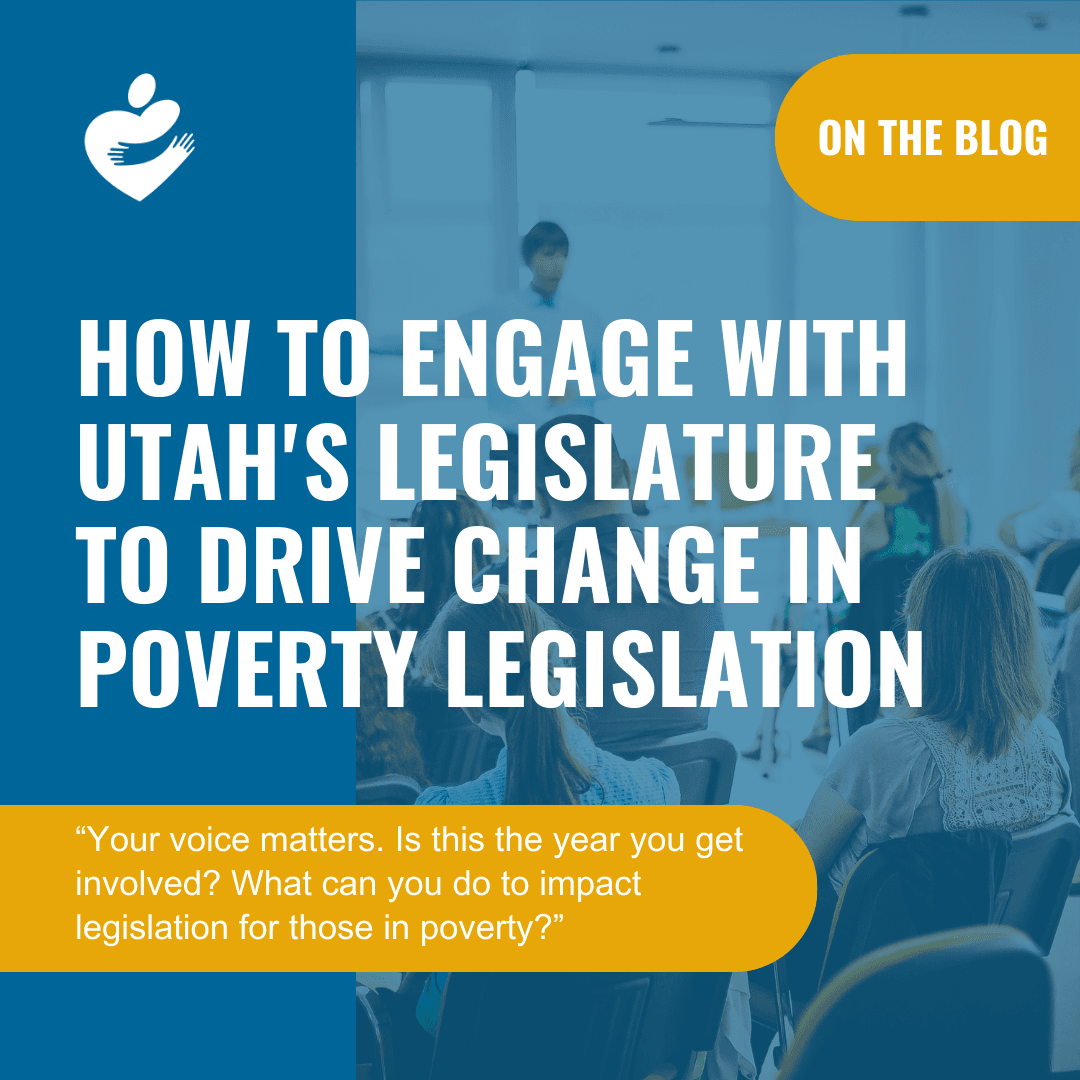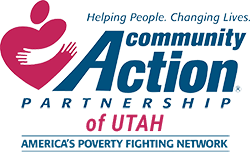
It is that time again. It happens on the first Tuesday after the third Monday every January. You may be excited, or you may fear its very existence but come rain or shine the Utah Legislature annual session begins. Base Budgets will be presented, appropriations will ask to fund programs, projects, or entities, and laws will be passed. Because these budgets and bills will impact you, your organization, and your clients, your voice matters. Is this the year you get involved? What can you do to impact legislation for those in poverty? To make this easy, the following are steps and links to help you get involved.
1. Engage with your local representative. Click here to enter your address and zip code to locate your representative. Do you have a concern, idea, or need that you want addressed? Your local representative is the best place to start. There are several ways you can engage while the legislature is in or out of session. Pick what level you are comfortable with and begin:
OUT OF SESSION (45 days after the session begins)
- Attend town hall meetings to engage directly and build on-going relationships. Your representative will need time to consider your good ideas, meet with lawyers, and draft legislation. If you wait until they are in session, it will be too late! Remember you may not agree today but being respectful will serve you well in the future.
- Invite legislators to your organization, an event, or a board meeting. I’ll scratch your back if you scratch mine is applicable. Opportunities to be seen helping in the community are appreciated especially in election years. Exposure to your organization, your staff, and your clients will help your legislator understand the important work you do in ending poverty.
IN SESSION
- Write letters or emails. Personalize your message and explain how poverty affects you or your community. Click here for email address for senators and here for house representatives.
- Make phone calls. Be prepared with specific talking points and ask for their support on poverty-related legislation. The email links above also have phone numbers.
- Utilize social media. Engage with legislators on social media platforms by commenting on their posts, sharing relevant information, and tagging them in your own posts about poverty.
2. Participate in advocacy campaigns. Each year there are several groups who focus on poverty-related issues. These campaigns often organize letter-writing campaigns, petitions, and other activities to raise awareness and pressure legislators to act. Click here to learn about one organization that CAP Utah participates with: Invest in Utah’s Future Coalition.
3. Participate in public hearings and provide testimony on poverty-related issues. This can help legislators understand the real-life impact of poverty and shape their decision-making. Are you interested in a specific bill? Track it here and see when it is scheduled in committee or on the floor. Click here if your bill is being presented and you want to listen in real time or make a public comment. Click here if you want to learn the basics of how bills become law.
And finally, click here for a glossary to learn how to party (suspend the rules), add a knuckle of meat (ad hoc), or concur to whip (yes whip) a troublesome legislator. Before you crack that whip, remember that your representatives are human, with their own experiences, challenges, and responsibilities. Approaching them in an empathetic and understanding manner can foster more meaningful and productive conversations and lead to positive change.
